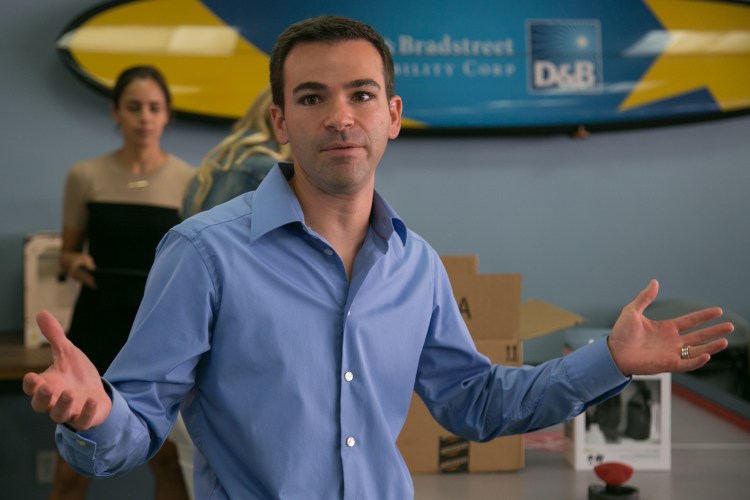Facebook has some serious shrinking to do if it wants to stay relevant.
That’s the assertion of tech executive and New York Times best-selling author Jeff Stibel, 40, who has been thinking long and hard lately about what the Menlo Park-based social media kingpin and its more than 1 billion users need to do in order to grow and avoid the grim fate that befell MySpace.
“The point I’m making is that big is not always better. When you look at biology that’s almost always the case. Mosquitoes and ants have outlived dinosaurs. At some point, networks become too big for their own good. They become cluttered. Hard to use. Cumbersome. That’s what happened to MySpace,” Stibel told VentureBeat during a phoner from his Los Angeles home Tuesday afternoon.
Much of what Stibel had to say is borne out by tech history. And maybe even biology. Analyst R. “Ray” Wang of Constellation Research said recently that Facebook’s demographic caters more to “soccer moms” than it does to young teens and that users of social media have a multitude of platforms to choose from other than Facebook.
Facebook’s user base “is getting old. If you want to attract the 40 to 50 demographic you go to Facebook. You don’t have to be on Facebook to be active and social. Facebook is one of many single places” to go, Wang said.
Stibel said he knows exactly what Facebook needs to do.
“Facebook needs to shrink in size in order to grow in quality. Look. The irony of Facebook’s success is they received a lifeline from mobile. With the advent of mobile and more form factors they were stuck, in effect,” the rapid fire talking Stibel said excitedly.
“They had this tiny little screen and had to reinvent themselves. Now they’re doing it in the form of apps,” Stibel said, pointing to the company’s purchase of WhatsApp this year for $19 billion.
These days, Stibel is the chief executive of Dun & Bradstreet Credibility Corp, a business credit agency.
I asked Stibel what, of his credentials, gave him carte blanche to tell Facebook publicly what it takes to survive. He has degrees from Tufts University, MIT and Brown. He sits on the board of the Search Agency, EdgeCast Networks, BrainGate and Autobytel.
His novel from Macmillan Publishers in 2013 called “Breakpoint” did a stint on the New York Times best-seller list. And strangest of all, he was a recipient of the Brain and Behavior Fellowship while he was at Brown, in a medical field called translational science. He admits he dropped out before he got his PhD because he bailed on his thesis.
He left Brown prematurely, he said, in order to launch a startup.
“The first thing Facebook needs to do is exactly what they’re doing. Which is they’re forcing people into different defined networks and virtual spaces,” Stibel said.
VentureBeat's mission is to be a digital town square for technical decision-makers to gain knowledge about transformative enterprise technology and transact. Learn More

